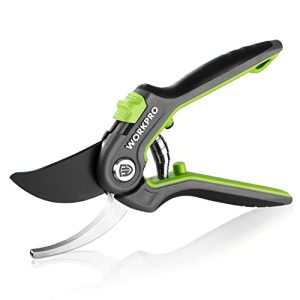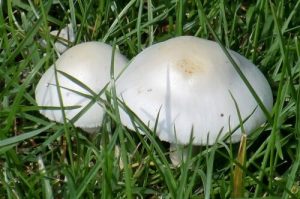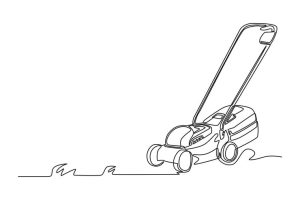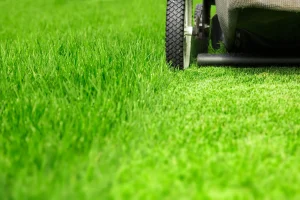Imagine this: you wake up early, brew your morning coffee, and eagerly anticipate the sight of vibrant birds fluttering around your backyard feeder. But instead of a peaceful scene, you find pesky squirrels raiding the seeds, leaving nothing for your feathered friends.
Frustrating, isn’t it? You’re not alone. Many bird enthusiasts face this relentless challenge. You might have heard whispers about using Vaseline as a secret weapon to keep these furry thieves away. But does it really work? Before you start smearing petroleum jelly all over your bird feeder pole, let’s explore whether this simple household remedy can truly deter squirrels or if it’s just another myth.
Stay with us as we unravel the truth and discover effective ways to protect your bird feeder from these crafty critters.
:max_bytes(150000):strip_icc()/how-to-keep-squirrels-out-of-bird-feeders-8646434-final-895c367fca1e4f8cbc344d3ae281a5a5.png)
The Vaseline Myth
Many bird enthusiasts have heard of the Vaseline trick to keep squirrels away from bird feeders. It’s a popular idea, but does it really work? The Vaseline Myth suggests that applying Vaseline to bird feeder poles will make them too slippery for squirrels to climb. Let’s take a closer look at this myth and see why it might not be the best solution.
Origins Of The Idea
The Vaseline Myth likely began as a simple attempt to outsmart squirrels. Bird lovers, frustrated by the clever critters raiding their feeders, sought a harmless method to deter them. They thought: if the squirrels can’t grip the pole, they won’t reach the food. It seemed like a straightforward solution.
As word spread, many people tried it. The idea gained popularity because it was easy and cheap. You might even have a jar of Vaseline in your bathroom right now, ready for use. But did it solve the problem, or just add another layer of frustration?
Common Beliefs And Practices
Some people believe that Vaseline is an effective squirrel deterrent. They argue that it works like a charm, keeping their feeders squirrel-free for weeks. However, others are skeptical and report mixed results. Have you ever tried it yourself? What did you notice?
Many people apply Vaseline generously to poles and hangers. They hope this slippery surface will be enough to thwart the persistent squirrels. Yet, some find that squirrels are smarter and more persistent than expected. These furry acrobats often manage to bypass the slippery barriers with surprising agility.
Before you start slathering Vaseline all over your feeder, consider its impact. Is it really the best approach? Have you thought about the mess it creates or the potential harm it might cause to the birds? Weigh these factors carefully.
While the Vaseline Myth continues to circulate, it might be time to explore other options. What creative solutions could you try instead? Perhaps it’s time to rethink your strategy and find a method that truly works. Your birds—and your sanity—will thank you!
Squirrel Behavior And Adaptation
Squirrels are fascinating creatures known for their cleverness and adaptability. Anyone who has tried to keep them away from a bird feeder knows how persistent they can be. Their behavior and ability to adapt make them particularly challenging to deter. Let’s dive into why squirrels are so attracted to bird feeders and explore their adaptability and persistence.
Why Squirrels Love Bird Feeders
Bird feeders offer an irresistible buffet for squirrels. They are drawn to the easy access to seeds, nuts, and grains that feeders provide. This convenience means they don’t have to forage far and wide to find food.
Think about it: why would a squirrel choose to scavenge through the woods when a feast is available right in your backyard? Bird feeders are often placed in locations that are accessible to squirrels, making them an attractive target.
If you’ve ever watched a squirrel raid a bird feeder, you know they can be quite the acrobats. They jump, cling, and maneuver in ways that seem almost magical. Their agility and determination make these feeders a prime spot for a meal.
Adaptability And Persistence
Squirrels are masters of adaptation. They learn quickly and can modify their strategies to overcome obstacles. This adaptability is why traditional deterrents often fail to keep them at bay.
Consider this: if a squirrel encounters a slippery surface like Vaseline on a bird feeder, it might struggle initially. However, it will soon figure out new ways to approach the feeder, perhaps by hanging upside down or approaching from a different angle.
Persistence is key in squirrel behavior. They don’t give up easily. You might watch in awe as they try, fail, and try again. This determination is what makes them such formidable opponents in the battle to protect your bird feeders.
Have you ever wondered how they keep coming back, despite your best efforts? Their ability to adapt and persist might make you rethink your approach to protecting your feeders. Could it be time to try a new strategy?
Vaseline’s Effectiveness
Applying Vaseline to bird feeder poles can make them slippery. This might deter squirrels from climbing. It’s a simple trick to protect bird food.
Have you ever caught a squirrel in the act of raiding your bird feeder, leaving you frustrated and your feathered friends hungry? Many bird enthusiasts have tried various methods to deter these cheeky invaders. One unconventional approach is the use of Vaseline. But how effective is this slippery solution in keeping squirrels at bay?Mechanism Of Action
Vaseline works by creating a slick surface on the bird feeder pole. When squirrels try to climb, they lose their grip and slide down. This can be quite entertaining to watch and feels like a win for your backyard ecosystem. However, it’s crucial to apply it carefully to ensure it doesn’t come into contact with the feeder itself, where birds might land.Short-term Vs Long-term Solutions
In the short term, Vaseline can be surprisingly effective. Its immediate action of making poles slippery can deter squirrels, at least for a while. But squirrels are persistent creatures. Over time, they might learn to jump from nearby branches or simply try harder, reducing the effectiveness of Vaseline. Are you ready to challenge the squirrels with a slippery surprise? Or do you think it’s time to consider more permanent solutions, like squirrel-proof bird feeders? Balancing the act between enjoying wildlife and protecting your bird feed can be tricky, but with a bit of creativity, your garden can be a haven for your feathered friends.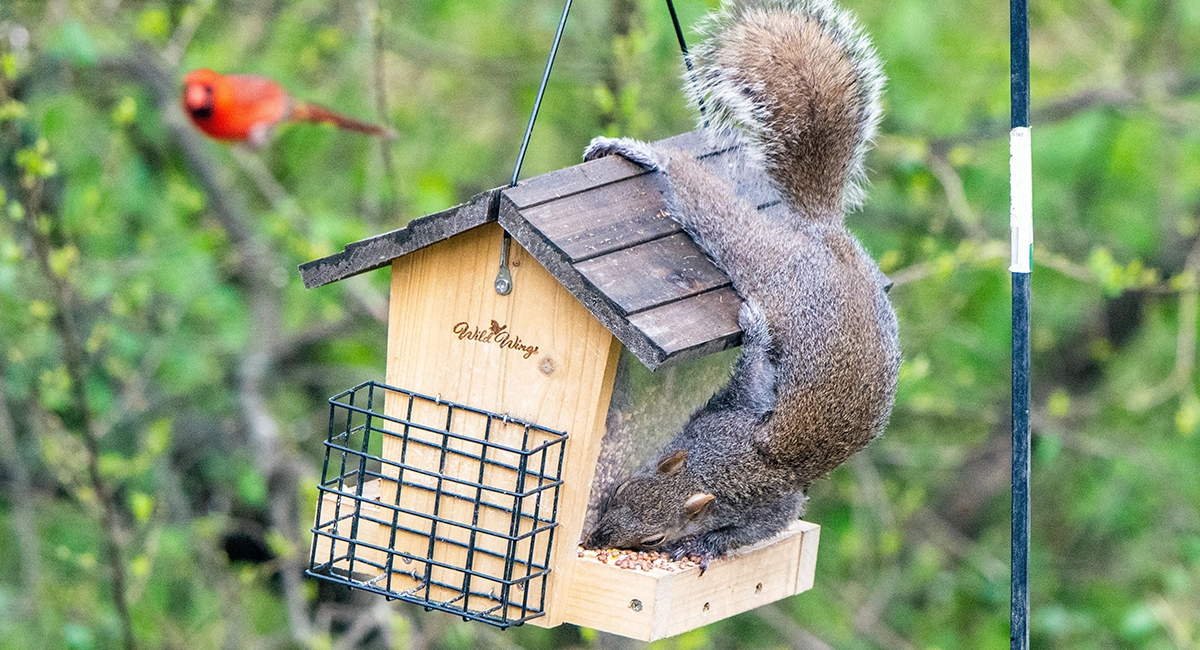
Safety Concerns
Safety concerns are crucial when considering methods to keep squirrels away from your bird feeders. While Vaseline might seem like a clever solution, it’s important to understand the potential impacts on wildlife and your backyard environment. Let’s dive into how Vaseline affects squirrels, birds, and the feeders themselves.
Impact On Squirrels
Applying Vaseline to a bird feeder can create a slippery surface, making it challenging for squirrels to grip. While this might deter them temporarily, it’s not a foolproof strategy.
Consider the risk of squirrels ingesting Vaseline as they attempt to navigate the feeder. Vaseline is not meant for consumption, and there could be health implications for squirrels.
Have you ever watched a squirrel’s acrobatics on a feeder? Their persistence might surprise you, leading to unintended consequences. Instead of just slipping off, they might get frustrated and find other ways to access the food.
Effects On Birds And Feeders
Birds can also be impacted by the presence of Vaseline. As they land on feeders, they might inadvertently come into contact with the substance.
Vaseline can transfer to their feathers, potentially affecting their ability to fly. This can be particularly concerning for smaller bird species that rely on their agility.
The residue from Vaseline can accumulate on your feeder, causing a sticky mess that’s hard to clean. You might spend more time maintaining your feeder than enjoying bird watching.
Before you grab that jar of Vaseline, ask yourself: Is this the safest solution for both squirrels and birds? Consider exploring alternative methods that prioritize the well-being of all creatures in your garden. Your backyard should be a haven for wildlife, not a slippery obstacle course.
Alternative Solutions
While Vaseline might seem like a quick fix, it’s not ideal. Squirrels can still outsmart this tactic. It’s better to explore other solutions. These options can keep pesky squirrels away for good.
Squirrel-proof Feeders
Investing in a squirrel-proof feeder is wise. These feeders are specially designed. They have mechanisms that deter squirrels. Some feeders close off access when extra weight is detected. Others have a spinning feature that gently dislodges squirrels. Such feeders ensure birds can eat peacefully. They are available in various styles and sizes. Choose one that suits your garden’s aesthetic. Your birds will thank you for the uninterrupted meals.
Natural Deterrents
Natural deterrents can be effective too. Squirrels dislike certain smells and tastes. Sprinkling cayenne pepper on birdseed may help. Birds don’t taste the spice, but squirrels do. Consider planting squirrel-repelling flowers like daffodils. They add beauty and act as a barrier. Using vinegar-soaked cloths near feeders can deter squirrels. The strong scent keeps them at bay. These methods are safe and environmentally friendly. They offer a harmonious solution for bird lovers.

Expert Opinions
Many bird enthusiasts struggle with squirrels raiding their bird feeders. A common solution often suggested is using Vaseline. But, does it really work? To find answers, we consulted experts in wildlife and birdwatching. Their insights provide a deeper understanding of this topic.
Wildlife Biologists’ Insights
Wildlife biologists suggest that squirrels are clever creatures. They adapt quickly to deterrents. Vaseline may initially confuse them. But they soon find other ways to reach the seeds. A biologist explained that using Vaseline can be harmful. It may damage the squirrels’ fur and skin. This can lead to health issues. For these reasons, experts recommend alternative methods.
Birdwatchers’ Experiences
Many birdwatchers have tried Vaseline on feeder poles. Some noticed a temporary reduction in squirrel visits. But others reported messy outcomes. Vaseline can make the feeder slippery for birds too. It could affect their ability to perch. Birdwatchers also mentioned the need for frequent reapplication. This makes it less practical for long-term use. Instead, they suggest squirrel-proof feeders or baffles as better solutions.
Practical Tips
Applying Vaseline to the bird feeder pole can deter squirrels. It makes climbing difficult due to the slippery surface. This practical tip offers a simple solution to protect bird feed from unwanted visitors.
Are you tired of squirrels treating your bird feeder as their personal buffet? While Vaseline might seem like a quick fix, there are more practical and humane ways to keep those pesky squirrels at bay. Let’s dive into some actionable tips that will help you maintain a bird feeder sanctuary without resorting to slippery substances.Maintaining A Squirrel-free Zone
Creating a space where squirrels can’t reach your bird feeder is crucial. Start by positioning your feeder at least 10 feet away from trees or structures that squirrels could use as launching pads. Height is also your friend; ensure the feeder is at least 5 feet off the ground. Consider installing a squirrel baffle. These dome-shaped barriers can be placed above or below the feeder to prevent squirrels from climbing down or up to their prize. It’s like having a tiny umbrella that squirrels just can’t get around. You might also try offering squirrels their own designated feeding area. A separate platform with seeds or nuts can distract them from your bird feeder. It’s a win-win situation—birds get their food, and squirrels get theirs.Enhancing Bird Feeder Enjoyment
Once you’ve managed the squirrel situation, it’s time to focus on making your bird feeder a delightful spot for birds. Choose a variety of seeds to attract different bird species. Sunflower seeds, millet, and cracked corn are popular choices. Cleanliness is key. Regularly clean your bird feeder to prevent the spread of disease among your feathered visitors. Use a mild soap and water solution and make sure it’s thoroughly dry before refilling. Observe and enjoy the diversity of birds visiting your feeder. Keep a journal or take photos to document the different species. This not only enhances your appreciation but also helps you notice patterns and preferences among the birds. Are there other creative strategies you’ve tried to keep squirrels at bay? How do you ensure your bird feeder is a haven for birds? Share your insights and let’s keep our feathered friends happy and healthy!Frequently Asked Questions
What Can I Put On My Bird Feeder Pole To Keep Squirrels Off?
Apply a squirrel baffle to the pole. Use a slinky to block their path. Grease the pole with petroleum jelly. Install a squirrel-proof feeder. Trim nearby branches to prevent jumping.
Does Vicks Vapor Rub Repel Squirrels?
Vicks Vapor Rub can deter squirrels due to its strong menthol scent. Squirrels dislike the smell and avoid areas where it’s applied. Use it sparingly on surfaces, but avoid direct contact with plants or food to ensure safety and effectiveness.
How To Stop Squirrels From Eating Out Of The Bird Feeder?
Install a squirrel-proof bird feeder with weight-sensitive mechanisms. Position feeders away from trees and fences. Use baffles on poles to deter climbing. Offer safflower seeds, disliked by squirrels. Apply hot pepper spray on feeder surfaces, as birds are unaffected but squirrels avoid it.
Regularly check and maintain the feeders.
What Is The Most Effective Squirrel Deterrent?
The most effective squirrel deterrent is using a combination of motion-activated sprinklers, predator decoys, and non-toxic repellents. Trim tree branches near your home and seal entry points. This strategy keeps squirrels at bay while ensuring your garden stays protected.
Conclusion
Vaseline might deter squirrels, but it’s not foolproof. They are clever creatures. Finding alternatives can be more effective. Try squirrel-proof feeders or baffles. These options offer better results. Consider experimenting with safe repellents too. Always prioritize bird safety and avoid harm to squirrels.
Research and patience are key. Enjoy watching birds without constant squirrel interruptions. Happy birdwatching!


